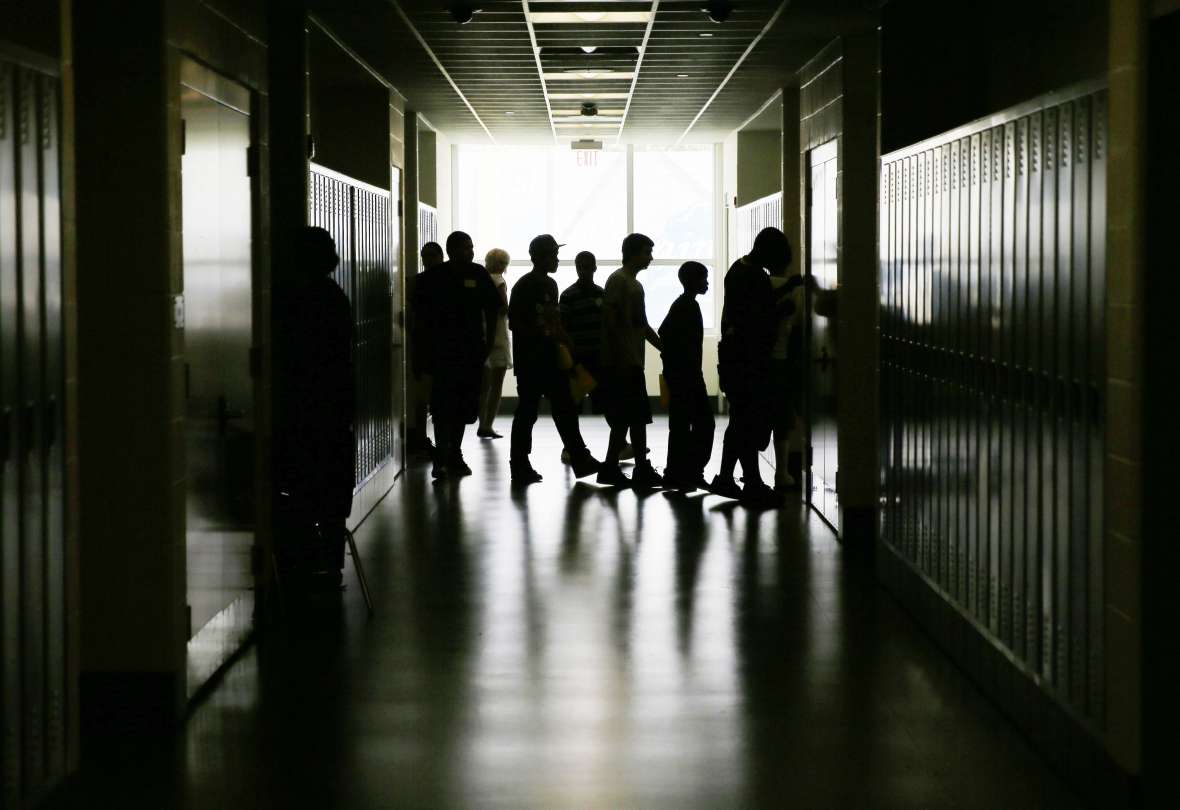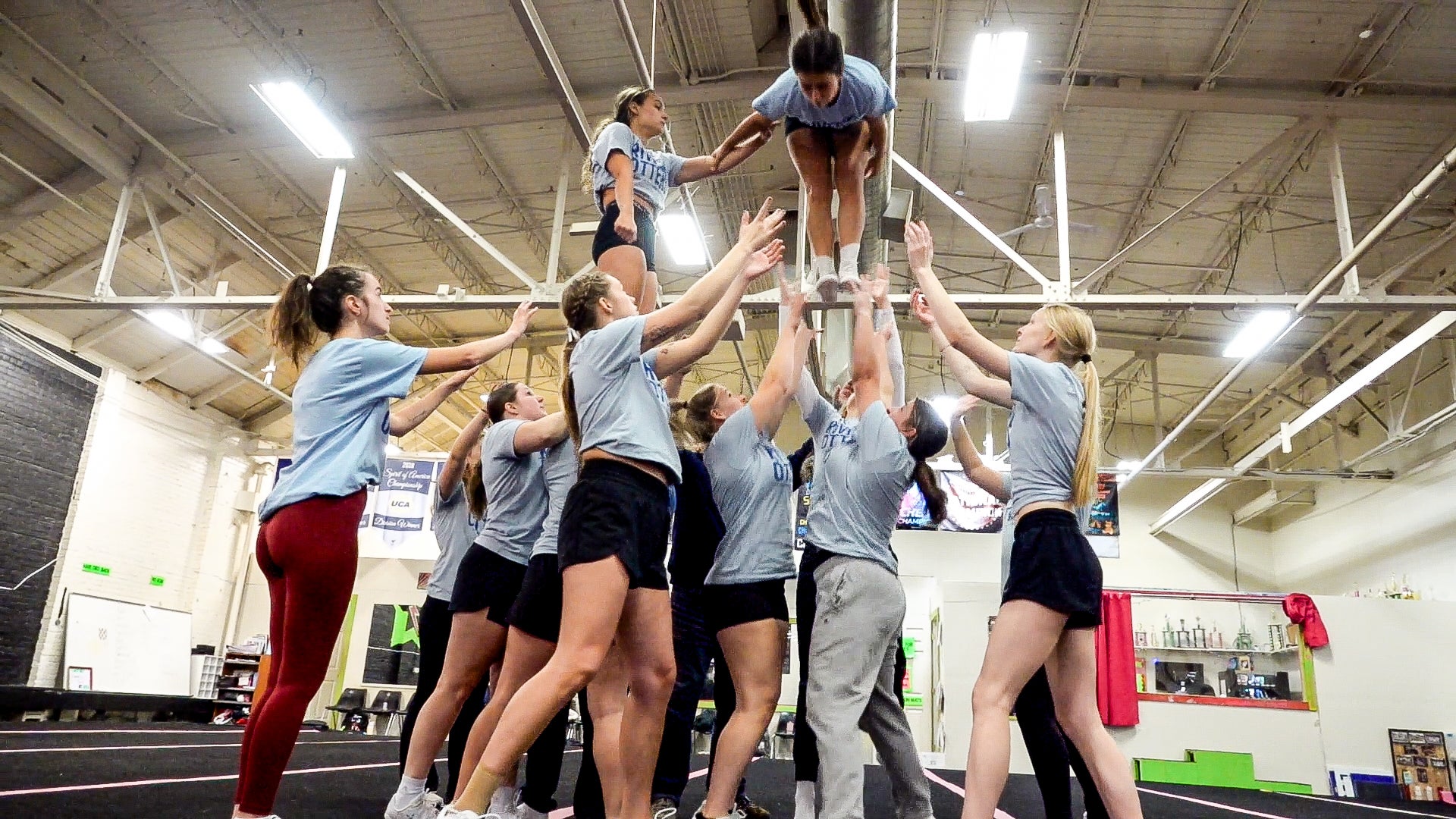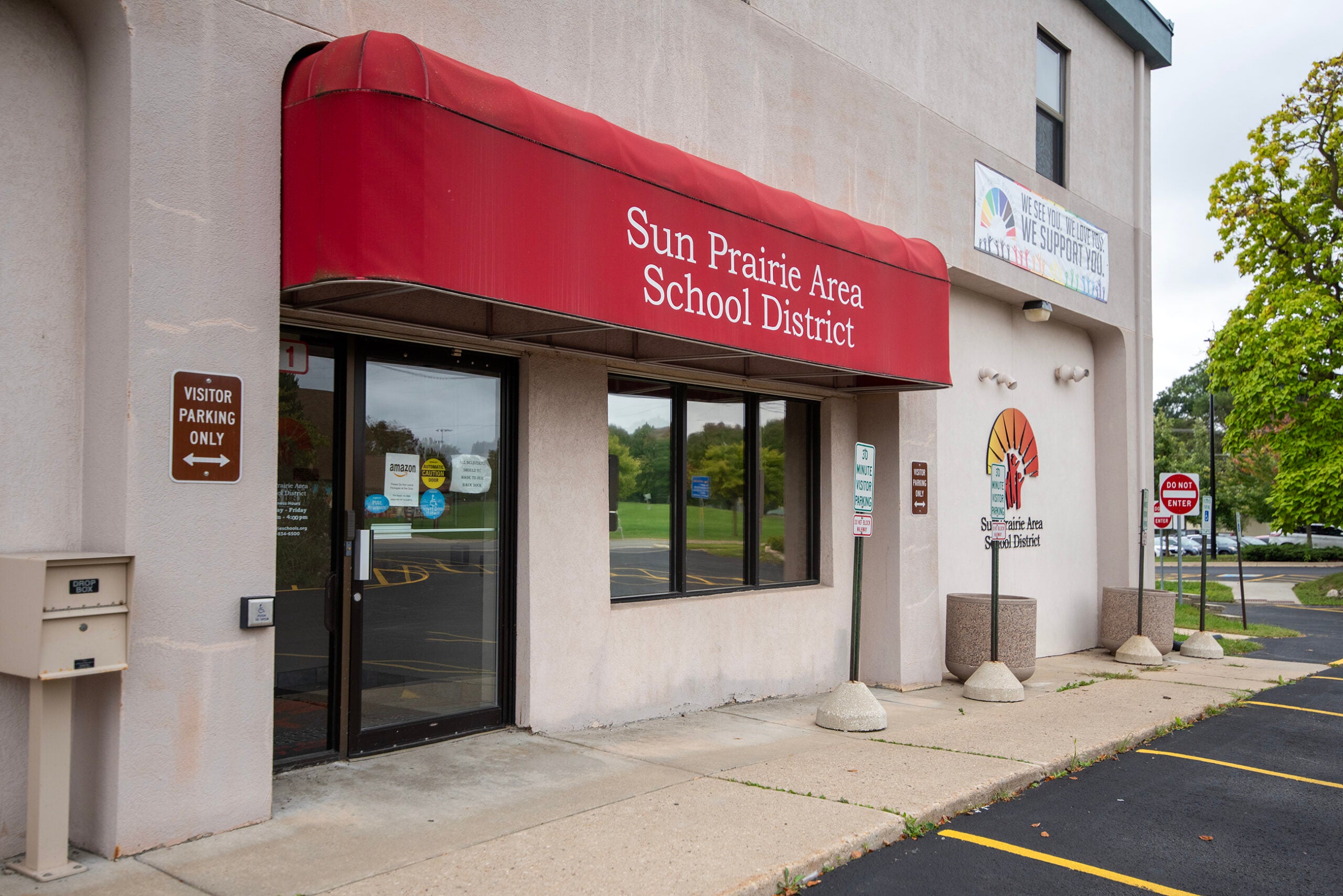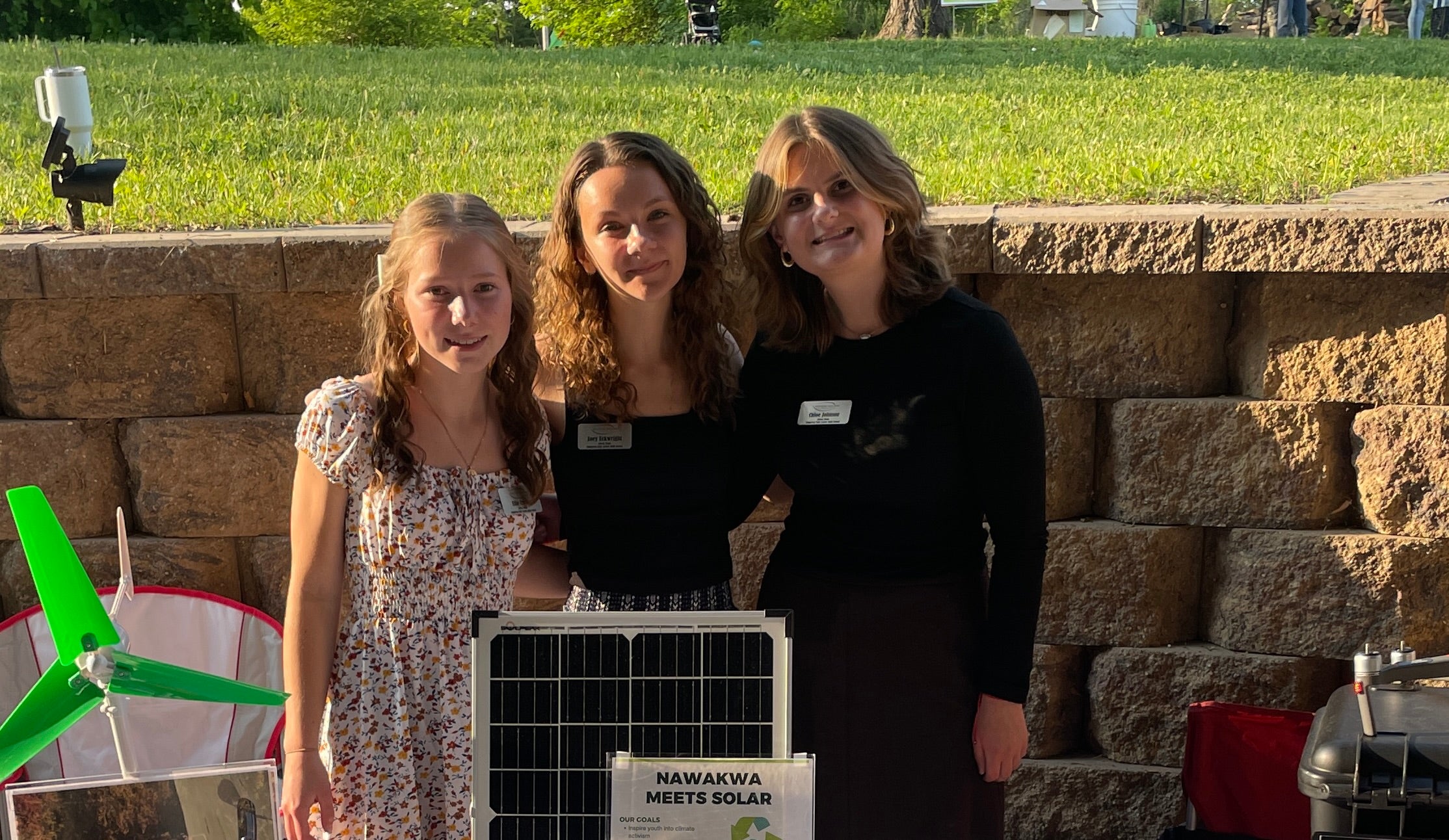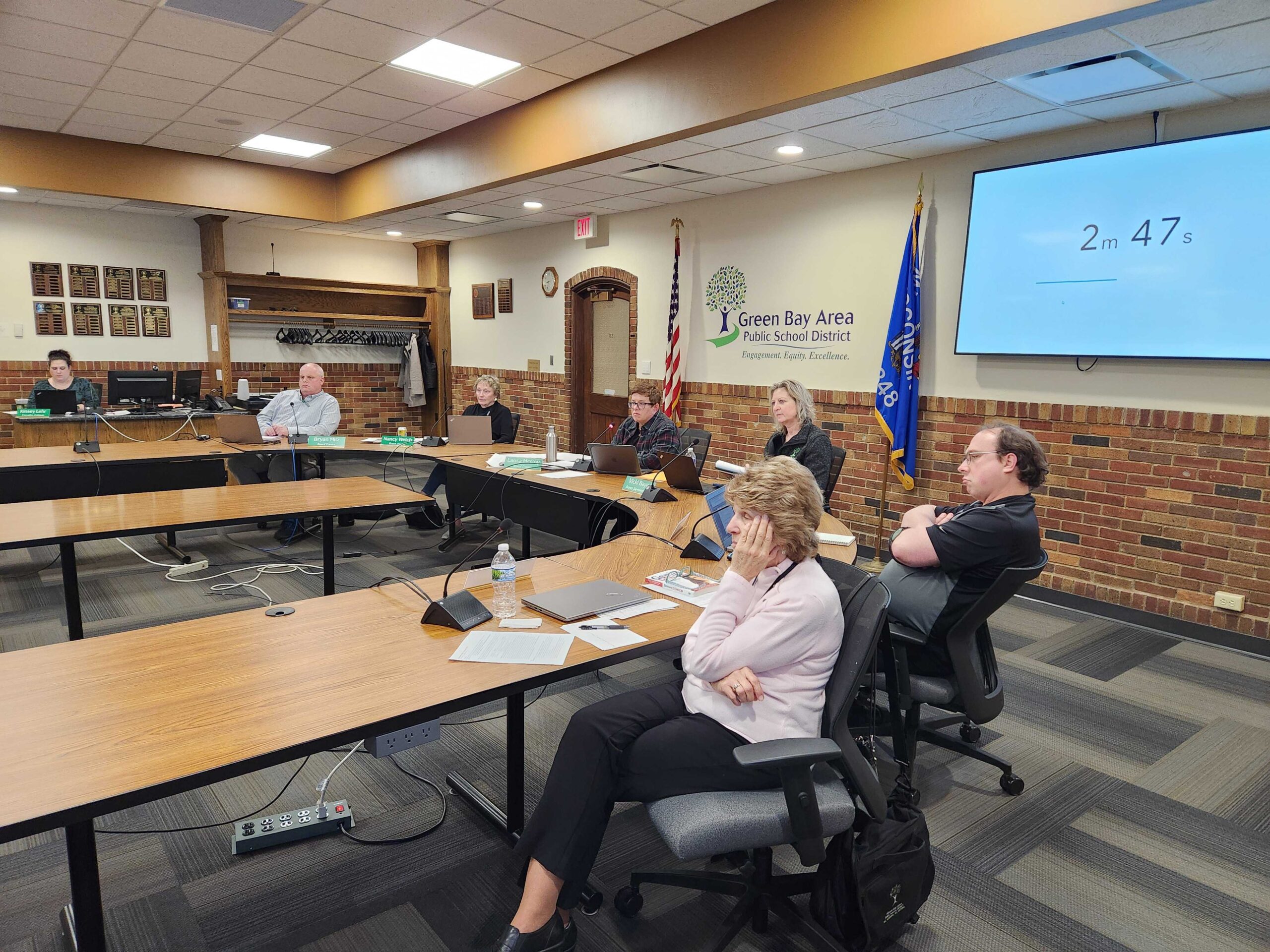When Casaiya Keyser was an eighth grader at Chippewa Falls Middle School, she and her classmates were asked to participate in weekly groups meant to teach strategies for coping with stress. Students ranked which groups they were most interested in — stress, family issues, healthy friendships — but Keyser was placed into a group she didn’t even list.
The assigned 6 percent group got its name from the fact that only 6 percent of the student body were students of color. Keyser, who identifies as African American, said it felt like they were “cherry-picking us out and putting us all in a room.”
Keyser told her counselor she wasn’t gaining much from the group and asked to switch to another one, but she was told she had to stay.
News with a little more humanity
WPR’s “Wisconsin Today” newsletter keeps you connected to the state you love without feeling overwhelmed. No paywall. No agenda. No corporate filter.
“I think that was my first inkling of, ‘Hey, there’s something wrong with the system,’” she said.
Keyser and three other former Chippewa Falls students recently formed the Cultivative Coalition, which, with the help of the American Civil Liberties Union of Wisconsin and the addition of experiences from current students, filed a complaint against the Chippewa Falls Area School District alleging it has chronically failed to address and prevent incidences of racial, sexual and gender-based harassment.
The complaint lists numerous other incidents Keyser experienced, ranging from being called the N-word and other racial slurs to being told to “Go back to Africa.” It also describes teachers and administrators minimizing her experiences or telling her she was being disrespectful when she tried to explain to fellow students why their language was harmful.
Hazel Behling, another Chippewa Falls alum who helped form the coalition after facing harassment for being gay, said it started for her when the parent of another student outed her in the school cafeteria in front of other students and teachers, and yelled Bible quotes and hurtful language at her.
Behling said a counselor at the school later pulled her out of class and told her she needed to repent her sins or she would go to hell.
“I had also heard of other people having similar experiences with the same counselor,” she said.
Both Behling and Keyser said their experiences with discrimination and harassment affected their schooling. Behling said she didn’t trust the school administration after her experiences with counselors, parents and other school staff. Keyser said she missed a lot of school, and was failing classes where she knew the subject matter — in addition to also feeling like she didn’t know who to trust.
“I was very outspoken, and a lot of teachers, I feel like, in the district used that against me, so I also didn’t feel like I had a lot of people to go to,” Keyser said.
The Chippewa Falls Area School District released a statement after the complaint was filed but said it couldn’t go into detail about the charges because it identifies specific students and involves student disciplinary matters, which are confidential pupil records.
“We have made it a priority to implement and enforce policies to address pupil discrimination, and to be inclusive throughout our process of developing those policies,” the statement reads. “We aspire to provide an educational environment that is not only free of discrimination, but is welcoming to all.”
Chippewa Falls is just the most recent school district to see a formal complaint or lawsuit over failing to properly address a discriminatory or hostile environment. Elisabeth Lambert, Equal Justice Works Fellow at the ACLU of Wisconsin, said she’s helped file complaints at five school districts this past year, and conducted training and education to help familiarize people with their districts’ complaint process and their rights in 25 more.
One of those was the Burlington Area School District, where the state Department of Public Instruction found a “racially hostile environment” and ordered the district to create a corrective action plan.
“A lot of people are recognizing themselves in my clients, and in the story that we’re telling about what’s going on in these different schools,” said Lambert.
The complaint process is set at the district level, so it requires different steps and procedures depending on where students are raising concerns. Lambert said that, as described by DPI, it’s meant to be more of a collaborative opportunity for growth.
“It’s not supposed to be adversarial, it’s not person versus district,” she said. “It’s supposed to be the person helping the district out with some information, so the district can use that to provide an equitable educational environment for its students.”
She said the Grantsburg School District, which houses the virtual charter network iForward, hewed to that ideal — she helped file a complaint on behalf of a student who had been blocked from trying to form a Gay-Straight Alliance, and said the district worked to understand the law and its own policies before sitting down for a conversation.
“We were able to reach an agreement that really felt great,” she said. “The district acknowledged that students at iForward had a right to form a (Gay-Straight Alliance) on an equal basis with other clubs, and they’re doing what they need to do to make sure that GSA is successful.”
Keyser and Behling said they think Chippewa Falls still needs to work on adequately addressing students’ concerns and make meaningful changes. They pointed out the lack of documentation of incidents like when Behling was pulled out of class by a counselor or sent to talk to a school resource officer, or when Keyser dealt with teachers after some of the racist incidents she experienced, which they said affects accountability.
The women say they want to see that accountability, as well as structures in place to make sure the incidents are handled appropriately when they come up. They want to see more mental health services and counselors, and to make sure they’re trained to better meet the needs of students facing discriminatory behavior — which particularly hits home for Behling, after her own experience with the counselor telling her to repent.
“We need to ensure that the counselors and social workers we have in place are trained in diversity and inclusion work,” she said. “I went to a counselor in the school and they obviously did not give advice that should have been given in a public school.”
They want a more inclusive curriculum, and to expand existing mentorship programs to incorporate mentors of color, LGBTQ mentors and others who can more directly relate to some students’ experiences.
They also want students and families who report these incidences to be taken seriously, even when they don’t have the ACLU behind them.
“A lot of people that we’ve talked to who have either reported stories before Cultivative Coalition or even after Cultivative Coalition that weren’t directly linked to us and haven’t heard back aside from ‘We’re going to look into it,’” said Keyser. “Which was the case for Hazel and I (when we reported things before the complaint) — ‘We’re going to look into it,’ but nothing ever got handled, resolved, or spoken about again.”
Although their complaint is still working through the district’s process, filing it has already gotten Keyser thinking about the work still to be done in other schools around the state, and beyond.
“I’ve always been vocal, and I’ve always wanted to do something impactful,” she said. “As I’ve started working with the ACLU more, I’ve started thinking, maybe I want to go back to the political science I was studying, and to do law, to fight in a more direct way.”
Wisconsin Public Radio, © Copyright 2026, Board of Regents of the University of Wisconsin System and Wisconsin Educational Communications Board.

